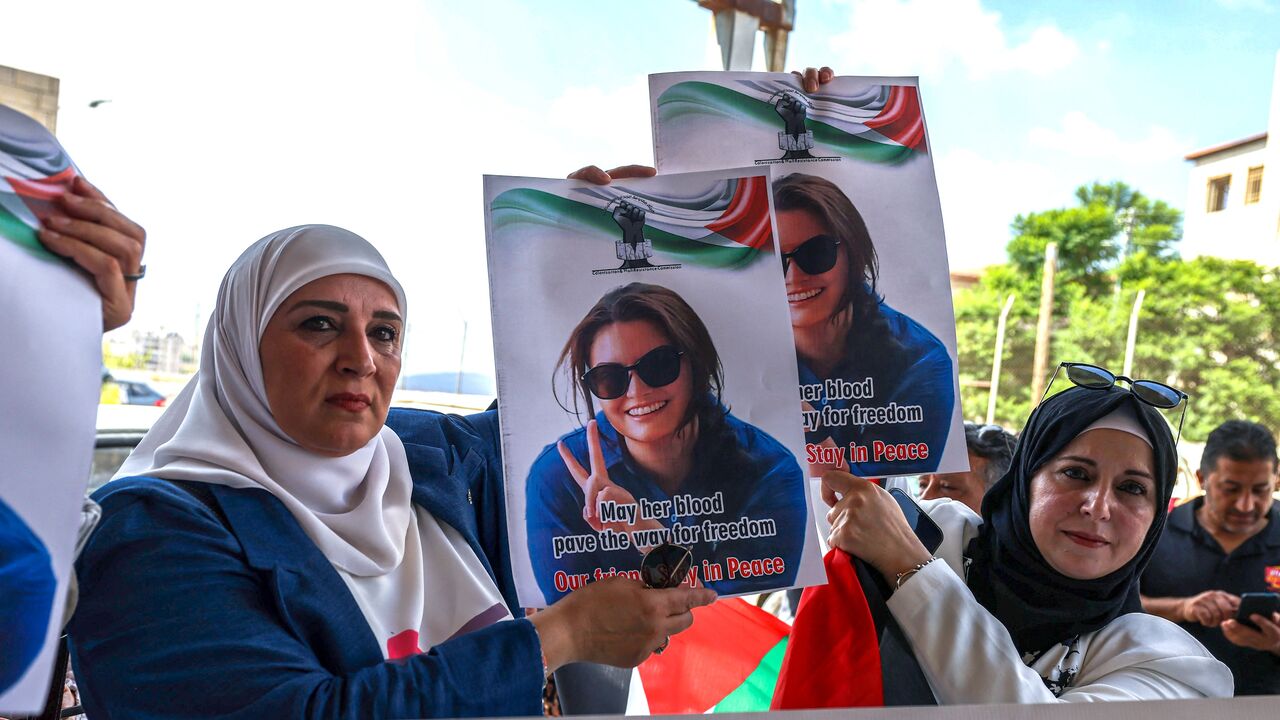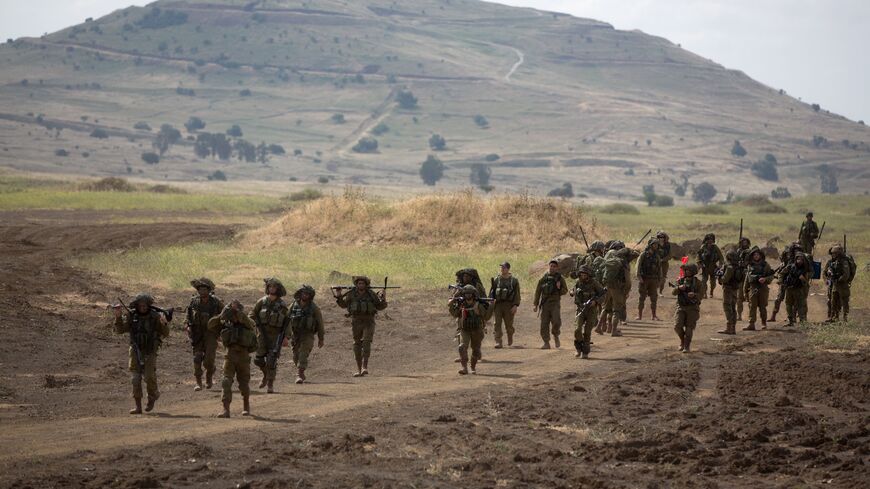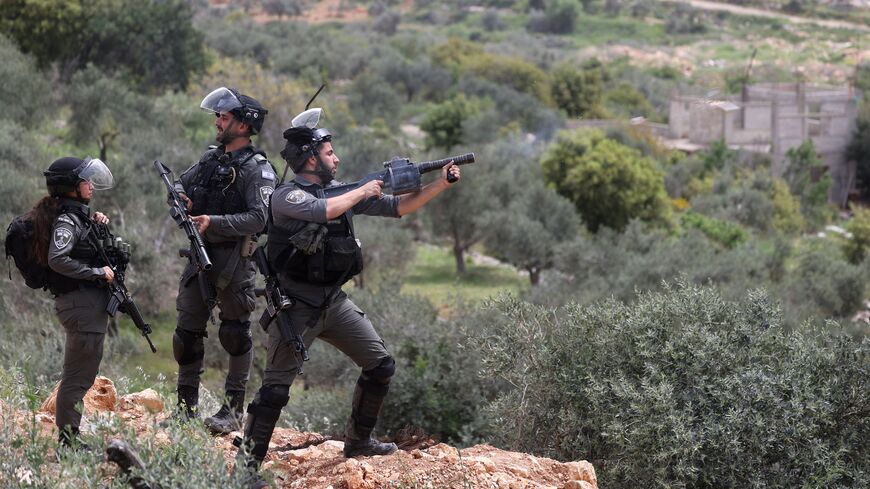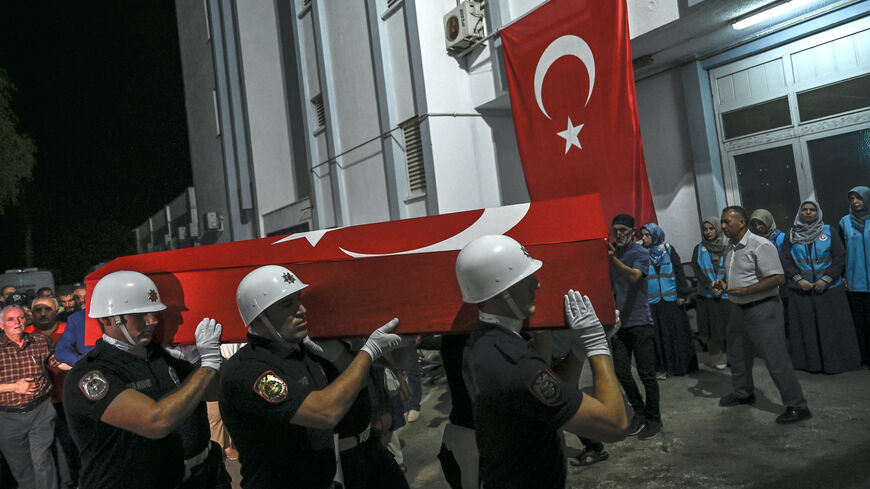US lawmakers warn of Israeli inaction after another American killed in West Bank
The deaths of several US citizens at the hands of Israeli troops raise questions over Israel’s willingness to investigate and prosecute its own.

You're reading an excerpt from The Takeaway, where we break down the latest in US-Middle East diplomacy. To read the full newsletter, sign up here.
WASHINGTON — President Joe Biden and members of his administration frequently say they have “no higher priority” than the safety and protection of American citizens around the world. And yet Biden has so far resisted growing calls for an independent investigation into the Israeli military’s killing of a US citizen in the occupied West Bank last week.
Israel on Tuesday acknowledged that it was “very likely” that 26-year-old Turkish-American woman Aysenur Ezgi Eygi, was “unintentionally” fired on during a protest in the town of Beita. The Israeli military said its fire was aimed not at Eygi, but “the key instigator of the riot” who was throwing stones. It did not say who the alleged target was, or why its forces resorted to using live ammunition.
An investigation from The Washington Post suggests Eygi and the other protesters posed no apparent threat. The newspaper reported that the shots were fired toward the protestors “some 20 minutes after they had retreated to the bottom of the hill — more than two football fields away from the nearest Israeli soldiers.”
The White House is demanding Israel provide “full accountability” into Eygi’s death, but critics say the Israeli military too frequently shields its own from meaningful accountability. According to data from 2017 to 2021 collected by Yesh Din, an Israeli human rights organization, there’s a less than 1% chance that a complaint filed against an Israeli soldier accused of violence against Palestinians and their property would lead to an indictment.
On Wednesday, Democrats hailing from Eygi’s home state of Washington — Rep. Pramila Jayapal and Sens. Maria Cantwell and Patty Murray — called for a US-led independent investigation into her death. Eygi’s family and dozens of other lawmakers, including Sen. Chris Van Hollen (D-Md.), have echoed those calls.
“The Biden administration should not allow the Netanyahu government to stonewall them,” Van Hollen told Al-Monitor in an interview. “I've been in touch repeatedly with the Biden administration about these killings, and it's very clear that they're not doing enough to get answers and to get accountability and justice.”
Van Hollen drew a comparison to the death of Shireen Abu Akleh, a Palestinian-American journalist fatally shot by Israeli troops while reporting from the Jenin refugee camp in May 2022. Following an outcry from Congress, the FBI launched an investigation into what Israel said was an accidental shooting. The Israeli government refused to cooperate with the FBI probe, and the bureau hasn’t released its findings.
More recently, the Biden administration called for Israel to investigate the February killing of Tawfic Abdel Jabbar, a 17-year-old Louisiana-born US citizen whose family said he was fired on by an off-duty police officer and Israeli soldier while driving in the West Bank.
Weeks later, Mohammad Khdour, a 17-year-old US citizen born in Florida, was fatally shot near Jerusalem in similar circumstances. The findings of Israeli investigations into the teens’ killings have not been made public.
When a US citizen is killed by a foreign military, a potential criminal investigation would be handled by the Department of Justice, which opened an investigation into Abu Akleh's killing. The State Department has other accountability tools, including the so-called Leahy Law that's meant to ensure US security assistance isn’t going to military units that are credibly implicated in "gross violations of human rights.”
The State Department considered aid cuts to Netzah Yehuda, an ultra-orthodox Israeli battalion whose soldiers bound, handcuffed and abandoned 78-year-old Palestinian-American Omar Assad to die in the freezing cold at a West Bank checkpoint in January 2022.
The Israeli military dismissed two of the soldiers involved but did not bring criminal charges. In August, the State Department said it was satisfied with Israel’s response — including "steps to avoid a recurrence of incidents" — and aid to Netzah Yehuda would continue flowing.
Sarah Harrison, a senior analyst at International Crisis Group and former Department of Defense lawyer, said the administration has watered down the standard for Israel and therefore other foreign governments to address such violations under the Leahy Law.
“Instead of holding perpetrators to account for the worst crimes possible that they could ever commit, they can just remove them from the unit and reprimand them," Harrison said.
There is another State Department process for investigating when American-made weapons are used to kill or injure civilians, known as the Civilian Harm Incident Response Guidance. If a violation is verified, officials can recommend to State Department leadership whether to restrict arms or mandate additional training for partner security forces.
As Israel’s biggest arms supplier, it is likely that defense equipment provided by the United States contributed to Eygi’s death and should be evaluated under the CHIRG framework, said Ari Tolany, director of the Security Assistance Monitor program at the Center for International Policy.
“Given the Biden administration's refusal to hold Israel to account for repeated violations of international humanitarian and human rights law, it remains to be seen how this process will play out,” Tolany said.
In May, a congressionally mandated State Department report on Israel’s military conduct in the Gaza Strip since Oct. 7 said it was “reasonable to assess” that Israel had used US-provided weapons in "instances inconsistent with its international humanitarian law obligations." The department concluded, however, there was not sufficient evidence to support withholding military assistance.
The State Department did not return a request for comment on whether it was investigating the possible use of US weapons in Eygi’s death.
The death toll from Israel’s military campaign against Hamas has surpassed 41,000, according to Gaza’s Health Ministry, which doesn’t distinguish between civilians and combatants but says a majority of the dead are women and children. The Biden administration has repeatedly voiced concern over the civilian death toll in the Palestinian territory but largely refrained from using US weapons transfers as leverage to ease the humanitarian crisis.
“The Biden administration needs to make more effective use of American leverage,” Van Hollen said. “We just have this pattern where the president makes requests of the Netanyahu government, the Netanyahu government ignores or rebuffs those requests, and then the Netanyahu government gets rewarded by the president.”







